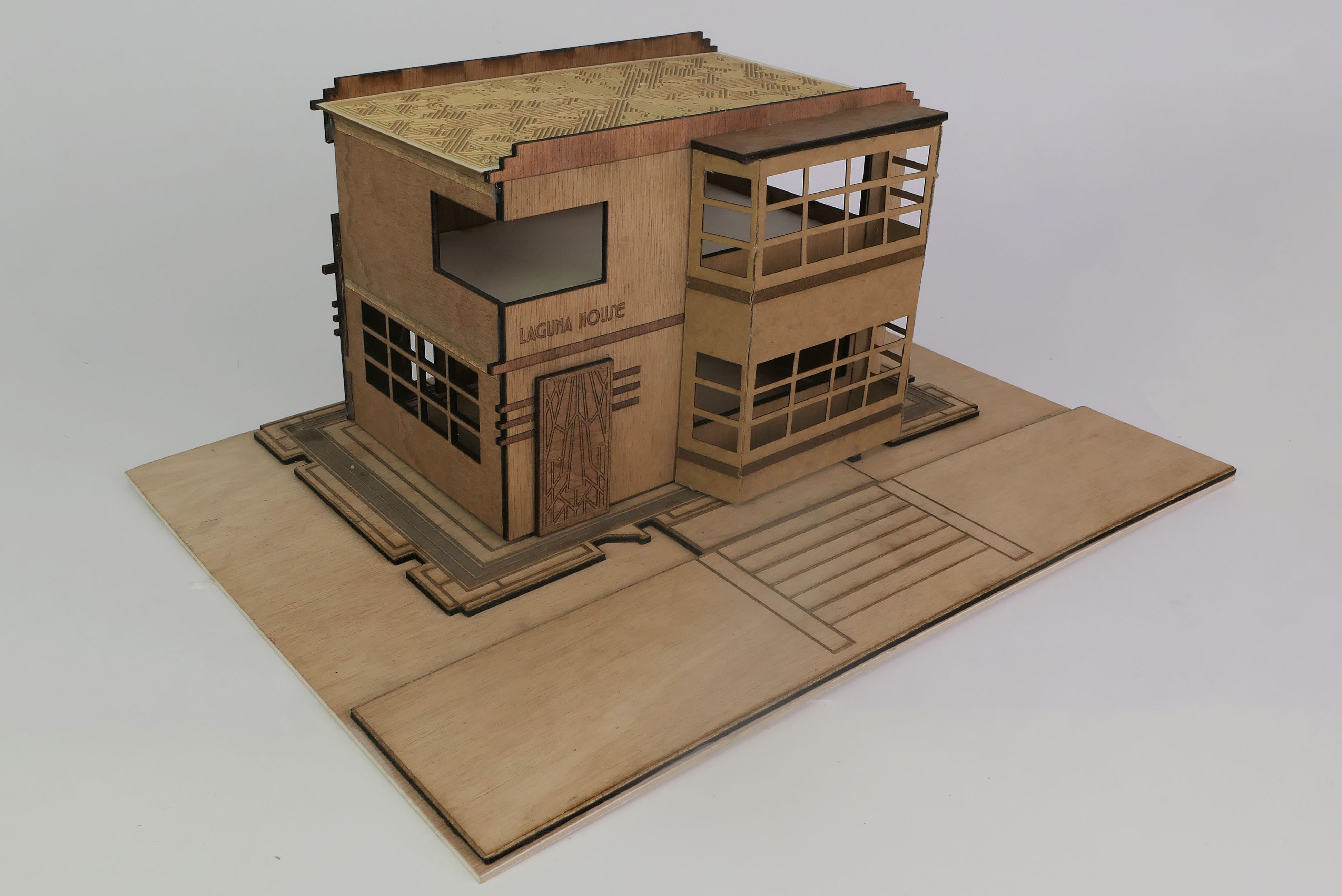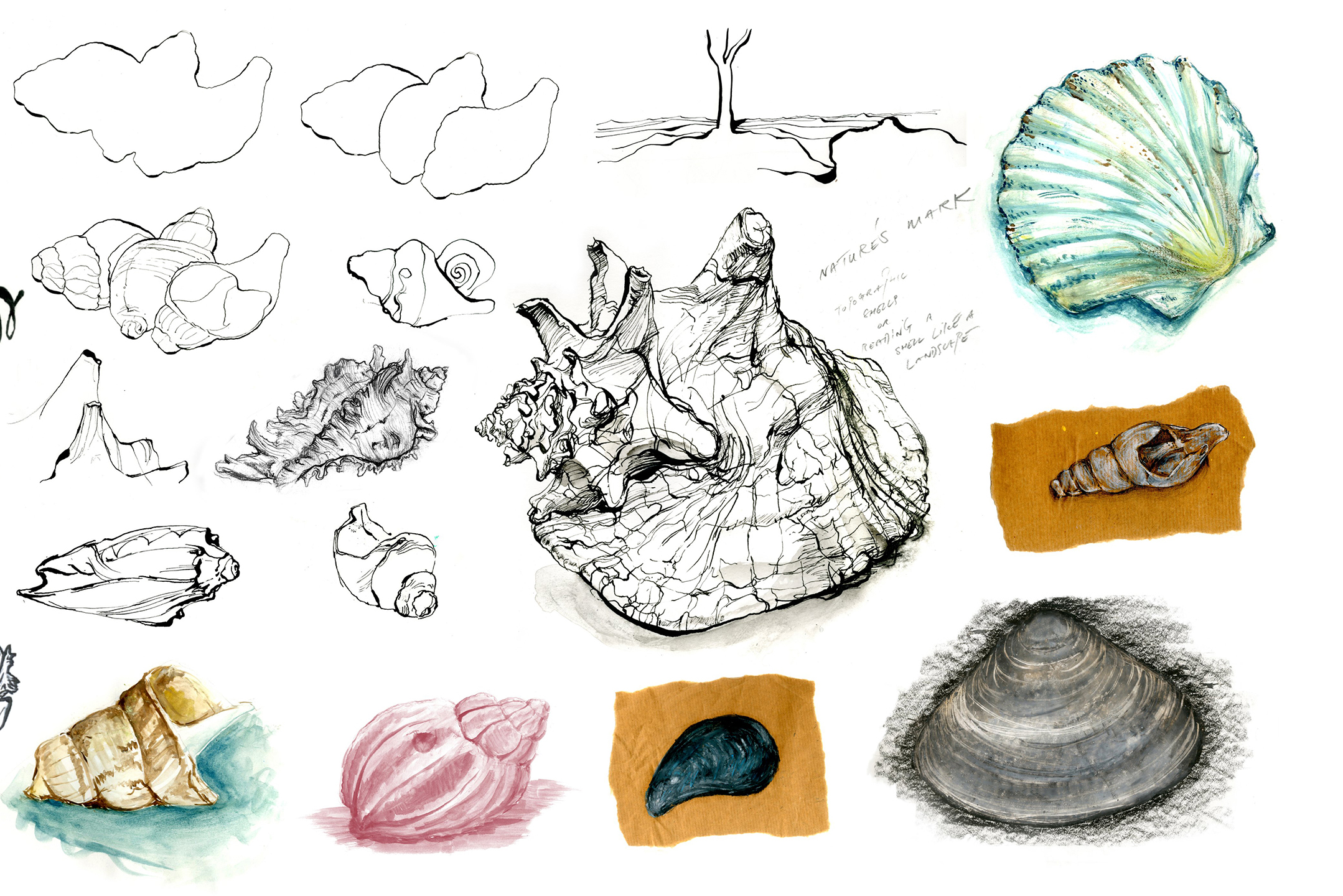A-Levels and GCSEs
We have a dedicated Sixth Form Centre which offers 24 A-Levels, A-Level equivalent courses and GCSE Pathway in Humanities and Science, for students who wish to take a more academic pathway.
These are ideal for students wishing to follow an academic pathway and progress to university, apprenticeships or the world of work.
GCSEs
Our GCSE Pathway courses provide students who have the potential to move onto Level 3 study with five intensive GCSE courses to build up their confidence and study skills over one year. It is an ideal option for students who do not quite meet the minimum requirements for their intended A-Level or applied A-Level courses but want to develop their academic potential within humanities or science-related subjects.
A-Levels
Click here to see a full list of our A-Level subjects and information.
We have 24 A-Level and A-Level equivalent subjects to choose from with subjects that aren’t always available in school. We have developed a range of A-Level equivalent subjects, which are vocational courses that can be studied alongside academic A-Level subjects.
We have a limited number of spaces in the Sixth Form, so we try to prioritise students who have not previously studied A levels.
We are not usually able to offer places to those who wish to retake AS/A levels or have previously enrolled on, and not completed, AS/A levels here or at other schools/colleges. However, where we do consider such applications, we will seek references and require, among other requirements, a very good recent record of attendance and completion of work. We may also set an entry test.
If an offer is not made for the Sixth Form, the College will look to try to offer alternative courses at the same level.
In 2024 our A-Level students achieved the following:
- 33% of students achieved A* A and B grades (120 grades awarded)
- 57% of students achieved A* A B and C grades (309 grades awarded)
- 337 students successfully went to university in September 2024
- 71% were first-choice university offers
- 55 students progressed to Medicine and Biomedical degrees.
Russell Group universities, where students now attend are:
- University of Exeter
- Kings College London
- University of Sheffield
- University of Nottingham
- Queen Mary University of London
- University of Edinburgh.
Students will be completing AS-Level qualifications in the first year and, upon successful completion, will study A2-Levels in the second year. This is the equivalent to two-year A-Levels but gives you a recognised qualification at the end of the first year.
A-Level Subjects
-
Applied Business Level 3 (A-Level equivalent)
In the 21st Century, all organisations need to make sure that the people in them are busy organising resources, producing, selling, marketing, managing their staff and managing their finances. Managers must organise these resources to provide goods and services for customers to be successful.
This qualification helps you develop skills, knowledge and the depth of understanding you need to prepare you for entry into employment, promotion if in a job and to gain entry to higher education.
The course is a practical, work-related course and you will cover a range of business topics including business organisation, marketing, the business environment and finance.
Entry requirements: 5 GCSEs grade 9-5 (grade C and above) in academic subjects, including GCSE English Language and Maths at grade 5.
Click the button below to read additional entry requirements concerning international qualifications and applications to retake/restart A levels.
Exam Board: OCR
-
Applied Criminology Level 3 (A-Level equivalent)
This course explores criminology by looking at psychological, criminological and biological theories, case studies and analyses criminal activities/criminal justice system. You will study current issues such as the media creating moral panics against young people, procedures for criminal investigations, criminal agencies of control and why white-collar crime is underreported. The Office for National Statistics stated in 2014 that 212,699 fraud offences were recorded in England and Wales which has increased every year since.
Entry requirements: 5 GCSEs grade 9-5 (grade C and above) in academic subjects, including GCSE English Language at grade 5.
Click the button below to read additional entry requirements concerning international qualifications and applications to retake/restart A levels.
Exam Board: WJEC
-
Applied Law Level 3 (A-Level equivalent)
This course looks at how the law works, how law is made and the people involved in the law. You will also study several aspects of criminal law such as homicide, theft, burglary and robbery.
Entry requirements: 5 GCSEs grade 9-5 (grade C and above) in academic subjects, including GCSE English Language and Maths at grade 5.
Click the button below to read additional entry requirements concerning international qualifications and applications to retake/restart A levels.
Exam Board: Edexcel
-
Architecture (RIBA-Approved) A-Level
Discover the A Level Architecture course in London at Richmond upon Thames College (RuTC), co-developed with the Royal Institute of British Architects (RIBA). This unique, design-focused programme gives creative students a head start in architecture, combining sustainable design, practical skills, and professional mentorship.
This is more than a traditional A Level. Students explore architectural design principles, master Adobe Creative Suite and 3D computer modelling, and develop skills in sustainable and environmental design. Through technical and freehand drawing, students learn to visualise ideas, supported by an in-depth study of architectural history and styles. Real-world experience is central to the course. Students learn in a studio-style environment, attend RIBA-led workshops, and work directly with architects and design professionals. Over two years, each student builds a professional architecture portfolio, essential for university applications and creative careers.
This unique and dynamic Architecture course is one of a kind and is considered to be part 0 of the Architecture pathway establishing you on a sure footing for your architecture career ahead. Graduates typically progress to architecture degrees (BA), interior architecture, landscape architecture, product design or creative fields like gaming and animation. Many also move into architecture apprenticeships or modelmaking.
Based in Twickenham, London, RuTC is the only UK college to offer an A Level Architecture course in direct collaboration with RIBA, ensuring industry relevance and exceptional standards.
Entry Requirements: 5 GCSEs grade 9-5 (grade C and above) in academic subjects, including GCSE English Language at grade 5 and a demonstrable enthusiasm for drawing.
Click the button below to read additional entry requirements concerning international qualifications and applications to retake/restart A levels.
Exam Board: OCR
Check out our Architecture Studio, plus some examples of the models that our Architecture students have created in the gallery below.
-
Art and Design: Graphics with Illustration and Animation A-Level
The A-Level in Graphic Design with Animation & Illustration at Richmond upon Thames College (RuTC) is designed for students who love drawing and want to use their art skills in future creative careers. Based in Twickenham, London, this exciting course blends artistic talent with practical design and animation skills, helping you build a strong portfolio for university or studio-based careers.
In the first year, you’ll focus on creating professional merchandise for the Kew Gardens gift shop. This project teaches you key graphic design principles such as branding, typography, and packaging design, while using industry-standard tools like Adobe Photoshop and InDesign. You’ll learn how to turn your drawings and ideas into print-ready products for a real client, developing skills essential for careers in graphic design, product packaging, and marketing.
In the second year, your creative focus shifts to animation. You’ll design and produce an animation to promote a conservation charity of your own creation. This hands-on project combines drawing, storytelling, and digital animation techniques, giving you valuable experience in bringing your ideas to life through moving images. Students learn in a studio-style environment with guest lectures and mentorship from industry professionals, helping you connect classroom learning with the creative industries. You don’t need to be a perfect technical drawer—just a passion for art, creativity, and a willingness to develop your design process and a love for the subject.
Graduates from this course often progress to study Graphic Design, Illustration, Animation, or other creative degrees, or enter careers as designers, illustrators, or animators. Start turning your love of drawing into a creative career with RuTC’s A-Level in Graphic Design with Animation & Illustration.
To join, students need five GCSEs at grade 5 or above (including English and Maths) and an interest in art, design and drawing.
Entry requirements: 5 GCSEs grade 9-5 (grade C and above) in academic subjects, including GCSE English Language and a demonstrable enthusiasm for drawing.
Click the button below to read additional entry requirements concerning international qualifications and applications to retake/restart A levels.
Exam Board: OCR
Here are some examples of the impressive work that our Graphic Design students have produced in the gallery below.
-
Biology A-Level
A-Level Biology explores the principles of living systems and how life works. You will study the minute details of the cell and wonder over how such intricacies fit together to make the perfect you, living, breathing and able to make decisions.
You will also learn about how to ensure the planet is not damaged to ensure life continues in its full beauty for years to come.
Entry Requirements: 5 GCSEs grade 9-5 (grade C and above) in academic subjects, including GCSE English Language at grade 5, Maths and Biology or double Science at grade 6.
Click the button below to read additional entry requirements concerning international qualifications and applications to retake/restart A levels.
Exam Board: Edexcel
-
Business A-Level
Business is a dynamic subject which gives you the opportunity to learn about how businesses operate with strong links to the constantly changing world around us. The course covers key areas of business life in the 21st century through four key themes.
In the first year you will develop an understanding of marketing and managing business activities including finance, business strategy and global business. You will learn about these areas through a combination of lectures, role plays, presentations, group work and trips to see real businesses in operation. The A-Level consists of three externally examined exams.
Entry requirements: 5 GCSEs grade 9-5 (grade C and above) in academic subjects, including GCSE English Language and Maths at grade 6.
Click the button below to read additional entry requirements concerning international qualifications and applications to retake/restart A levels.
Exam Board: Edexcel
-
Chemistry A-Level
A-Level Chemistry explores the ways that molecules, atoms and ions react and how those reactions affect our life. There are 3 areas of Chemistry-organic which deal with how carbon compounds interact.
These carbons have been associated with life at some point. Inorganic chemistry looks at the reactions of the Periodic table. Physical chemistry looks at the physical properties of Chemicals.
Entry requirements: 5 GCSEs grade 9-5 (grade C and above) in academic subjects, including GCSE English at grade 5, Maths at grade 6 and Chemistry or double Science at grade 6.
Click the button below to read additional entry requirements concerning international qualifications and applications to retake/restart A levels.
Exam Board: Edexcel
-
Computer Science A-Level
In a world where computers and computer technology is used in every aspect of everyday life, it is no wonder that the demand for skilled computer scientists is increasing.
In A-Level Computer Science, students learn the principles of computing, algorithms, computer programming, machine data representation, hardware and software computer systems), computer architecture, networking and databases.
Computer Science is ideal for those with an abstract and analytical mind with an enthusiasm for problem solving and designing solutions.
Entry requirements: 5 GCSEs grade 9-5 (grade C and above) in academic subjects, including GCSE English and Maths at grade 6. Computer science GCSE preferred but not essential if you can demonstrate ability in IT.
Click the button below to read additional entry requirements concerning international qualifications and applications to retake/restart A levels.
Exam Board: AQA
-
Economics A-Level
Looking at the world around us questions always asked include: why is there climate change, why did the Financial crisis happen, why is there inequality, why did BREXIT happen, are there alternatives to how societies organise themselves?
Economists rarely agree the answers to these type of questions but we develop the key skills of investigation, evidence based analysis, use of models and ideas to try to answer them. However we must always realise that people, businesses and governments may not act as we expect. At the heart of the investigation is the economic problem which leads to choices that must be made by individuals, businesses and governments and the consequences of these choices by investigating: what do we produce, how do we produce and for whom do we produce?
Drawing on classical economic thinking and alternatives, economics investigates how markets operate, alternatives to the current systems we have developed as well as the global interactions between countries in the modern era of international trade.
We will aim to investigate the past to analyse the present to try to shape the future.
Entry requirements: 5 GCSEs grade 9-5 (grade C and above) in academic subjects, including GCSE English Language and Maths at grade 6.
Click the button below to read additional entry requirements concerning international qualifications and applications to retake/restart A levels.
Exam Board: Edexcel
-
English Literature A-Level
Studying English Literature A-Level invites analytical and creative thinkers to enjoy some significant works in the three major genres of plays, poems and novels and to learn how to write well focused academic essays on them. There will be particular focus with the contexts within which these works were written and the different interpretations to which they are open. A strong feature of the subject lies in bringing texts together through comparison.
You will engage critically and creatively with a range of exciting texts and develop your knowledge of literary analysis. You will explore the connections and relationships between texts, the attitudes and values of writers and deepen your understanding of the changing traditions of English. You will study three components: drama, poetry and prose, as well as having the opportunity to create an original extended essay on two coursework texts.
Entry requirements: 5 GCSEs grade 9-5 (grade C and above) in academic subjects, including GCSE English Language at grade 5.
Click the button below to read additional entry requirements concerning international qualifications and applications to retake/restart A levels.
Exam Board: Edexcel
-
Film Studies A-Level
Film can be argued to be the major art and cultural form of the twentieth century and of great significance at the beginning of the new millennium. 'Cineliteracy' is something you have been developing since childhood. The A-Level film studies is designed to deepen the way you understand, appreciate and enjoy film, building on your existing knowledge and interest.
Entry requirements: 5 GCSEs grade 9-5 (grade C and above) in academic subjects, including GCSE English Language at grade 5.
Click the button below to read additional entry requirements concerning international qualifications and applications to retake/restart A levels.
Exam Board: Eduqas
-
Geography A-Level
New for 2025 - details coming soon.
Entry requirements: 5 GCSEs grade 9-5 (grade C and above) in academic subjects.
Click the button below to read additional entry requirements concerning international qualifications and applications to retake/restart A levels.
Exam Board: TBC
-
History: Modern European A-Level
History is the study of past events, which uses a narrative to examine and analyse the sequence of those events and sometimes attempts to investigate, objectively, the reasons that caused them.
This course focuses on the three big European powers of the 20th century (nationalism, dictatorship and democracy in twentieth century Europe), Germany, Russia and Great Britain, and their contrasting fortunes as the century progressed.
Entry requirements: 5 GCSEs grade 9-5 (grade C and above) in academic subjects, including GCSE English Language or History at grade 6.
Click the button below to read additional entry requirements concerning international qualifications and applications to retake/restart A levels.
Exam Board: AQA
-
Law A-Level
Studying law offers the opportunity to develop a range of skills and explore many aspects of society. The law reaches into every aspect of everyday life. Questions of law affect all kinds of current issues ranging from whether Parliament must be able to vote on the BREXIT deal, to whether ISIS brides may be stripped of their UK citizenship, or whether social media companies should be held legally responsible when people commit suicide after viewing harmful content online.
Law appeals to a range of students including those that enjoy reading and writing essays, those that enjoy performing and those that enjoy taking a logic based approach to problem solving, but you don’t have to be all three to be good at law.
Entry requirements: 5 GCSEs grade 9-5 (grade C and above) in academic subjects, including GCSE English Language and Maths at grade 6.
Click the button below to read additional entry requirements concerning international qualifications and applications to retake/restart A levels.
Exam Board: AQA
-
Mathematics A-Level
Our A-Level Maths course develops techniques studied at GCSE to enable you to solve mathematical problems and to deepen your interest in the subject.
Knowledge of advanced mathematics is essential in a wide range of careers from the sciences to computing, business and economics.
Entry requirements: 5 GCSEs grade 9-5 (grade C and above) in academic subjects, including English Language at grade 5 and grade 7 in Maths.
Click the button below to read additional entry requirements concerning international qualifications and applications to retake/restart A levels.
Exam Board: Edexcel
-
Media Studies A-Level
The mass media have been an important field of study since the 1930s. Today, with more media around us than ever before, we spend much of our day staring at screens or plugged into music. It is therefore essential that we understand how the media communicate with us, the different ways in which we might react and how the industries that make these products operate.
Technological change is having a dramatic effect on traditional patterns of production and consumption, as the traditional media - radio, newspapers, television and film have migrated to the internet. Media Studies provides you with the critical and analytical tools to understand how the media represent the world around us, and what processes are involved. This includes learning some key theories, particularly in the area of narrative, genre, representation and the audience.
Entry requirements: 5 GCSEs grade 9-5 (grade C and above) in academic subjects, including GCSE English Language at grade 5.
Click the button below to read additional entry requirements concerning international qualifications and applications to retake/restart A levels.
Exam Board: Eduqas
-
Philosophy, Ethics and Religion A-Level
What is the meaning of life? Are we alone in the universe? Is there life after death? These are some of the deepest and oldest questions you will be exploring in this course. You will learn to examine the very nature of existence through a philosophical lens, developing critical thinking and analytical skills that are necessary in academia and beyond.
During the course you will have the opportunity to participate in our college Philosophy Society, take part in university essay competitions, and embark on various field trips in and around London. These activities will enhance your learning experience and allow you to engage with philosophy outside the classroom.
Over the two years, you will study the following areas:
- Philosophy of religion - exploring topics such as 'does God exist?' and 'what's the meaning of life?'
- Study of ethics - exploring the ideas around morality and whether is actually exists
- Study of religion (theological philosophy) - looking at the significance of religion and whether it has any meaning
- Special focus - at the end of the first year, you will look at university-level Philosophy, specifically focusing on the topic of existentialism.
Studying philosophy, religion, and ethics opens up a range of career opportunities, including law, journalism, public policy, politics, education, and more. The skills you develop in this course are transferable to most fields and are highly regarded by employers and universities.
Entry Requirements: 5 GCSEs (grade 5 minimum average), including GCSE English Language at grade 5 and Maths at grade 5.
Click the button below to read additional entry requirements concerning international qualifications and applications to retake/restart A levels.
Exam Board: Edexcel
-
Physics A-Level
A-Level Physics explores the operation of the world we live in. It deals with mechanics of how things work and how energy is transferred from one form to another.
You will build electric circuits and learn the different components that make them up. It deals with electronics and radioactivity on which the computing and Health Industries relies.
Entry requirements: 5 GCSEs grade 9-5 (grade C and above) in academic subjects, including GCSE English Language at grade 5 and maths, double science or physics at grade 6.
Click the button below to read additional entry requirements concerning international qualifications and applications to retake/restart A levels.
Exam Board: Edexcel
-
Politics A-Level
Politics is about considering important questions such as; Why the voting age should be lowered to 16? Why aren’t there more women in British Politics? Why do so few people vote in UK elections? Politics is around us and influence our everyday lives. Politics is about the way societies handle the competition for power, decide who may use that power and how it can be curbed to avoid abuse. Politics means different things to different people, it can solve problems, offer alternatives, stimulate anger and frustration or allow for people to live a better life.
Subject topics include:
- UK Politics: You will study features of democracy and participation, functions and features of political parties, electoral systems in UK, voting behaviour and the role of media.
- UK Government: You will study the workings of Parliament, the constitution, Prime Minister and executive as well as relationship between branches.
- Core and Non-Core Political Ideas: You will study the key political ideologies of Liberalism, Conservatism, Socialism and Feminism.
- Comparative Politics – Global Politics: You will study and explore some of the topical global issues such as globalisation and its economic, political and cultural impacts. The course will also cover the main theories of International Relations such as Realism and Liberalism. The course will also explore the role and significance of international organisations such as UN, IMF, World Bank, G8/20 and non-state actors. You will also explore the causes and consequences of climate change & environmental issues.
We arrange various enrichment activities every year such as day trips to Parliament and the Supreme Court. We also have visits from external speakers such as local MPs.Entry requirements: 5 GCSEs grade 9-5 (grade C and above) in academic subjects, including GCSE English Language at grade 6.
Click the button below to read additional entry requirements concerning international qualifications and applications to retake/restart A levels.
Exam Board: Edexcel
-
Psychology A-Level
Psychology is the scientific study of the human mind and the way that individuals behave. Examples of the kind of things psychologists are interested in are memory loss, gender identity, criminal profiling, addiction and the experience mental health issues like depression, phobias, schizophrenia and OCD.
Psychologists try to understand and explain human behaviour objectively but the extent to which humans can be treated scientifically is a source of great debate amongst those studying human behaviour.
Through studying Psychology we will be attempting to answer questions such as: Why do we conform to the majority? Why do we obey authority figures? How important are our experiences in childhood for our adult development? Can we trust our own memory? What influences us most: nature or nurture?
Psychologists use many different methods of enquiry, including experiments, observations, questionnaires and case studies. During your studies you will have the opportunity to design and conduct your own investigation using one of these methods.
Entry requirements: 5 GCSEs grade 9-5 (grade C and above) in academic subjects, including GCSE English Language and Maths at grade 6.
Click the button below to read additional entry requirements concerning international qualifications and applications to retake/restart A levels.
Exam Board: Edexcel
-
Sociology A-Level
Sociology is the study of the individual and society. It tries to explain human behaviour by studying how the different social groups which people belong to influence their actions and beliefs.
Many current social issues are studied by sociologists such as the increase in violent crime amongst young people (such as in the riots of 2011), the underperformance of boys in education due to a lack of male role models and the impact of new media on consumer choice and politics.
Entry requirements: 5 GCSEs grade 9-5 (grade C and above) in academic subjects, including GCSE English Language at grade 6 and Maths at grade 4.
Click the button below to read additional entry requirements concerning international qualifications and applications to retake/restart A levels.
Exam Board: AQA













